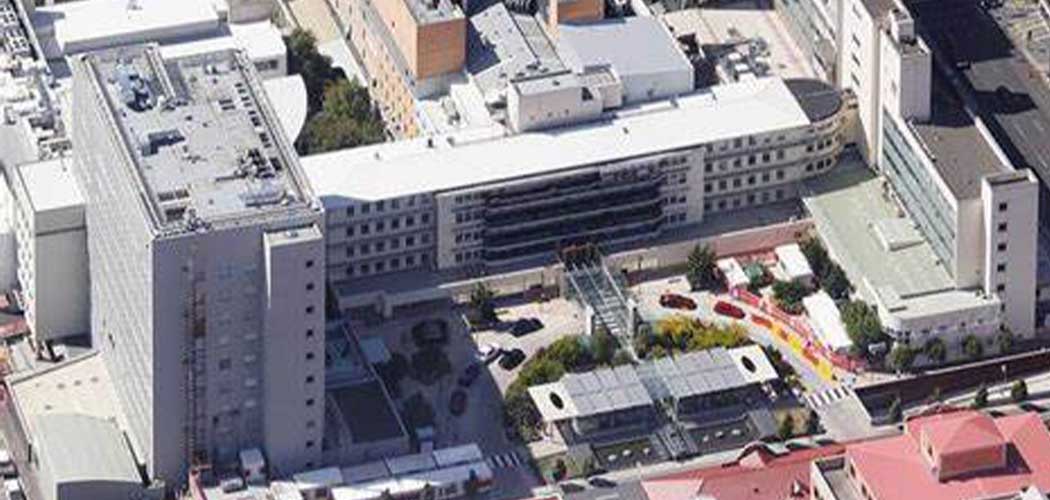Nurses and midwives held stop-work meetings across Tasmania last week to protest unsafe workloads, and the state government has announced an investigation into maternity services at the Royal Hobart Hospital.
Members held stop work meetings at the Royal Hobart Hospital, the Launceston General Hospital, and in the north at the North-West Regional Hospital and Mersey Community Hospital, to highlight the sustained and unreasonable workloads impacting staffing and patient care.
Staffing challenges were exacerbated by the pandemic and resulted in a national shortage. Despite the ANMF and members calling for action for years, incentives and solutions have been slow to occur, leaving Tasmania lagging behind, said ANMF Tasmanian Branch Secretary Emily Shepherd.
“These challenges have been further impacted by a government election commitment to ban ramping which has resulted in an increase in ED workloads of up to 23% in recent months. There is now hospital-wide pressure to move patients out of inpatient beds much quicker resulting in ambulance ramping and unrealistic workloads due to no additional staffing resources.”
Tasmanian members are exhausted, reducing their hours or leaving nursing and midwifery altogether, further exacerbating staffing shortages, Ms Shepherd said.
“At the RHH emergency department in the last 12 months, 44% of shifts were worked below the required staffing minimum. There are over 600 FTE permanent positions vacant just in the north and south regions. Urgent action is needed to support our members in their delivery of safe and quality care.”
While the ANMF Tasmanian Branch had been in discussions with the Department of Health, talks have so far failed to result in tangible outcomes for members. Members will discuss a proposal from the government at a statewide meeting this week.
“Clearly, how the staffing challenges impact patient care have been clearly illustrated over the last week in the maternity unit at the RHH, patients’ lives are at risk.”
Investigation into maternity unit at RHH
The ANMF Tasmanian Branch has welcomed commitment to a ‘rapid investigation’ of maternity services at the Royal Hobart Hospital following numerous concerns raised by the ANMF and past and current staff.
Minister for Health Guy Barnett announced an investigation after the ANMF raised serious safety concerns stemming from unsafe staffing at the maternity unit at the RHH.
“The ANMF requested an independent investigation to be carried out to fully explore and make recommendations for implementation to address the staffing and safety concerns. We welcome the Minister’s commitment to do this, as well as to work with the ANMF on the terms of reference,” said Ms Shepherd.
Members were unequivocal that staffing issues and safety concerns were putting women and babies at risk, she said. Severe adverse outcomes had occurred for some women and their babies despite midwives repeatedly escalating their concerns to internal management. These included:
- Women giving birth outside of the birth suite due to missed signs of labour, as regular checks weren’t being completed because of staff shortages.
- Some night shifts running with three midwives instead of the required nine.
- Patient ratios having reached 1:13, plus eight babies per midwife on late shifts.
- Babies losing over 10% of their body weight within the first three days due to infrequent checks and lack of support with breastfeeding.
- Increased reliance on formula feeding due to insufficient breastfeeding support from midwives due to workload.
- IV antibiotics being missed or delayed by more than six hours due to workloads.
- Six women admitted for induction were still waiting over a weekend due to insufficient staff to commence the inductions.
“These appalling conditions should never have been allowed to eventuate in a maternity unit where the lives of women and their babies depend on sufficient midwifery staffing levels along with their healthcare colleagues,” Ms Shepherd said.
Internal escalation of these concerns being ignored and not responded to, was unacceptable, she said. The ANMF Tasmanian Branch has demanded a range of immediate solutions, including:
- Immediate filling of all vacancies with agency staff on 12-month contracts until all vacancies are filled permanently.
- Ward aides and ward clerks 24/7 to allow midwives to focus on midwifery care.
- A clinical coach implemented to support early career midwives.
- Purchasing of private hospital birthing services and post-natal beds for low-risk mothers.








